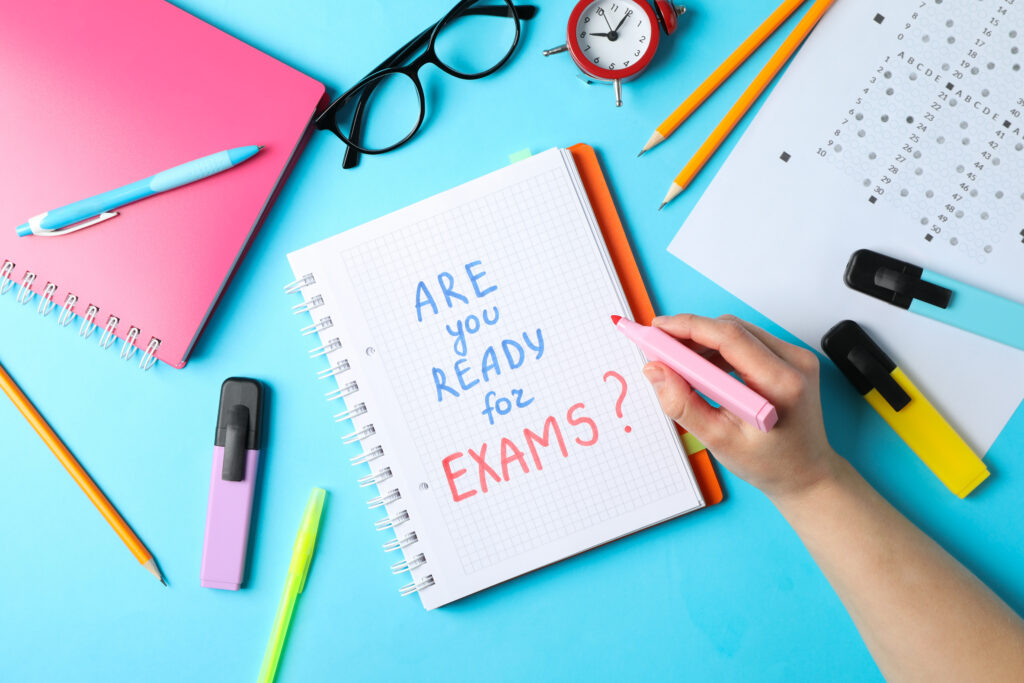For many students, the speaking part can be difficult. Some find the French IB oral trickier than the other exams, and arguably for those who don’t speak French regularly, it can take time to master.
The individual oral exam has a weight of 25% in the final Language B mark. It’s tough and some can need a helping hand to get top grades.
Does the upcoming French IB oral send your stress levels soaring? Fear not! With the right course of action, you’ll be able to overcome your communication barrier and develop more confidence.

French IB Oral for Standard and Higher Level
SL and HL French IB oral assessments are done a bit differently.
At an SL French exam, you will have to choose between two pictures related to the 5 themes of the French IB syllabus. You will then have about 15 minutes to come up with a plan for your oral presentation and get ready for a conversation.
When it comes to HL French IB oral, you need to give a talk based on the literary works you’ve studied during your French course. Worth noting that you’ll have 20 minutes to prepare what you’d like to say on the topic.
In both cases, you should create a plan for your speech rather than trying to write out everything you want to say during the prep time. For instance, you can write down some bullet points or highlight the things you want to elaborate on further.
Regardless of the level, the ‘talking’ part of the exam takes about 15 minutes, and it normally consists of:
-
Presentation of your speech (3-4 minutes) to describe a picture or summarize a piece of literary work, convey its main idea, talk about its characters or the environment they are in, as well as express your views.
-
Conversation with your examiner (4-5 minutes). Here, you will need to answer the follow-up questions, share your opinions and ideas, and express your appreciation of the topic.
-
General discussion (5-6 minutes). At this point, you have a chance to explain how the given topic relates to your own experience. Also, it is not uncommon to go beyond the topic of the presentation and touch upon other themes of your French course.
Now that you know what to expect at your exam, let us give you some tips to excel at the presentation, conversation, and discussion alike.
Have a Way with Words
It goes without saying that to speak a language, you need to have a wide vocabulary. That’s why repeating and adding new words to your vocabulary is important. Of course, learning so many new words and submitting them to memory can be boring … unless you get to turn it into a game, or make it interesting.
- Listen to Youtube videos on the potential exam topics.
- Pick podcasts on subjects that interest you and are linked to topics on your course.
- Use past exam topics and record yourself doing the oral. Afterward, you can mark yourself according to the mark scheme and see how you improve with practice.
- Talk French with your buddies for a day and help correct each other.
The same goes for idioms. They make any language more animated and natural. It would be great if you could memorize at least three idioms for each topic. Your examiner will be really impressed!
Saying all that, do not try to cram new vocab the night before your French IB oral. You want to build your confidence gradually.
Learn Your Tenses
Naturally, you need to know your way around these. And this concerns not only present, past, and future tenses, but also conditionals and imperatives.
Again, you can turn grammar practicing into a game. For instance, you can write all the topics on separate pieces of paper and put them into a pile. Then write all the tenses and put them into the other pile. After that, draw a piece of paper from each pile to see which topic and tense to combine. And now try to tell a story with the given conditions. Make sure to repeat the drawing several times to cover as many topics and tenses as possible.
You can also use random wheel spinner apps for the same purpose.
You can also learn some commonly used phrases by heart. Then use them in your presentation so you can be sure to demonstrate a wide use of tenses.
Be Ready for Questions
As we have already mentioned, questions coming from your examiner are an essential part of the IB French oral.
If you don’t want this to take you by surprise, you should make sure you have an idea of possible questions. That’s why long before you face these in your exam, you need to come up with your own list of questions.
Imagine, that you’re a celebrity. You tell an interesting story. After that, you turn into an interviewer. You ask your superstar self a question to find out more. Then you turn into a celeb again and answer. Repeat that till there is nothing else to ask on a topic.
Chances are that your examiner will ask the same things. And if your self-questioning leads you to a different yet related topic, you can use this experience as a foundation for the general discussion portion of the exam.
Ensure you have a Dialogue, not an Interrogation
Questions at your French IB are to be expected. However, don’t let them be in the form of interrogation. If you give short and uninspired answers, this experience can become quite intimidating. Instead, you can turn questions into a dialogue. Don’t try to give super deep answers, you won’t have time for that anyway. What you can do is try and take your conversation to the areas you know the best.
For example, if you get a question like ‘How do different cultures celebrate important moments in life?’, you can start your answer with ‘In my personal experience’ or ‘In my culture’, or ‘In my family, we celebrate …’.
This will help you make your answer more personal and related, as well as give you a chance to show off your knowledge.
Know the Marking Criteria
You will prepare for your oral exams in a much more effective way if you know what the examiners are looking for. this means grabbing the criteria for the oral, and understanding what will get you a 6 or 7.
remember, you don’t need to articulate fluently you just need to be able to express clearly your ideas and questions around the stimulus you are provided with. However, to access the higher grade boundaries you will need to express yourself without significant hesitations.
Chance Favours the Prepared Mind
We don’t even need to say that thorough French oral preparation is vital for a good grade. The best way to polish your oral French is to actually speak, talk, and converse.
It’s great if your family and friends can speak French. You can just pretend that you forgot how to speak your native language and use French instead. The more you practice, the more confident you get.
Don’t have anyone to practice with? Just use the power of technology to your advantage. For example, you can watch YouTube videos of French creators or French shows on Netflix to polish your pronunciation. Or you can record yourself on the phone to understand what others hear when you speak. You can even sign up for language exchange apps to get a chance to converse with native speakers.
One more way to prepare for French oral revision is to get a tutor. A tutor can give you valuable advice on how to improve your oral skills, point out your weak points, suggest vocabulary etc. You can even organize your own mockup French oral exam as one of the ways to prepare for the real thing.
Prepare for Your French Oral Exam with TutorsPlus
Like the idea of getting an IB French tutor? TutorsPlus is a good solution. Our experienced and friendly team of language tutors, all IB teachers, and IB Examiners can help bring your A-game to ace IB French. With us, you are able to cover the distance from ‘Je ne sais pas’ to ‘Oui, je parle français’ with minimum struggle.
You can reach TutorsPlus at 022 731 8148 or info@tutorsplus.com. We work hard to help you learn French easily!
If you want to take a look at the subject guide to see the outline of the whole course, you can see the IBO subject guide here.











